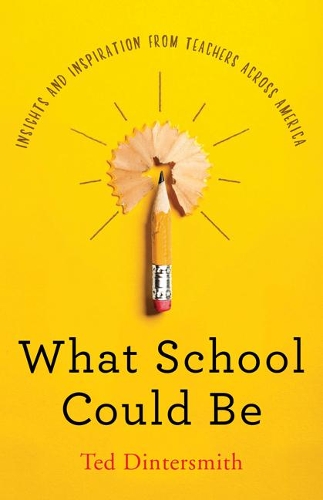
What School Could Be: Insights and Inspiration from Teachers across America
(Hardback)
Publishing Details
What School Could Be: Insights and Inspiration from Teachers across America
By (Author) Ted Dintersmith
Princeton University Press
Princeton University Press
19th June 2018
United States
Classifications
Tertiary Education
Non Fiction
370.973
Physical Properties
Hardback
264
Width 140mm, Height 216mm
454g
Description
An inspiring account of teachers in ordinary circumstances doing extraordinary things, showing us how to transform education What School Could Be offers an inspiring vision of what our teachers and students can accomplish if trusted with the challenge of developing the skills and ways of thinking needed to thrive in a world of dizzying technological change. Innovation expert Ted Dintersmith took an unprecedented trip across America, visiting all fifty states in a single school year. He originally set out to raise awareness about the urgent need to reimagine education to prepare students for a world marked by innovation--but America's teachers one-upped him. All across the country, he met teachers in ordinary settings doing extraordinary things, creating innovative classrooms where children learn deeply and joyously as they gain purpose, agency, essential skillsets and mindsets, and real knowledge. Together, these new ways of teaching and learning offer a vision of what school could be-and a model for transforming schools throughout the United States and beyond. Better yet, teachers and parents don't have to wait for the revolution to come from above. They can readily implement small changes that can make a big difference. America's clock is ticking. Our archaic model of education trains our kids for a world that no longer exists, and accelerating advances in technology are eliminating millions of jobs. But the trailblazing of many American educators gives us reasons for hope. Capturing bold ideas from teachers and classrooms across America, What School Could Be provides a realistic and profoundly optimistic roadmap for creating cultures of innovation and real learning in all our schools.
Reviews
"Dintersmith here shows the creative highs and mind-numbing lows of schooling today, contending that 19th-century education pedagogies cannot accommodate 21st century needs. . . . [What School Could Be is] for creative thinkers who are willing to change education with a vision that pushes back against centuries of entrenched value systems." * Library Journal *
"Without a doubt, following Dintersmiths prescription which is not so much a prescription, but a process which allows our schools and communities to choose something different for their schools would do a tremendous amount of good. Students would be introduced to a world in which school can be engaging rather than alienating, intellectually and creatively stimulating, rather than stultifying."---John Warner, Inside Higher Education
"In his new book, What School Could Be, Dintersmith offers a unique vision about the education system, and the potential accomplishments teachers and students can make together when parents and administrators trust them."---Robyn Shulman, Forbes
"This extraordinarily important book results from the authors field trip visiting schools from all 50 states in a single school year." * Paradigm Explorer *
Author Bio
Ted Dintersmith is one of the nation's leading voices on innovation and education. His four-decade career spans technology, business, public policy, and education philanthropy. He was the executive producer of the acclaimed documentary Most Likely to Succeed, as well as the author, along with Tony Wagner, of the book Most Likely to Succeed: Preparing Our Kids for the Innovation Era (Scribner). When he's not visiting schools, he lives in rural Virginia.
